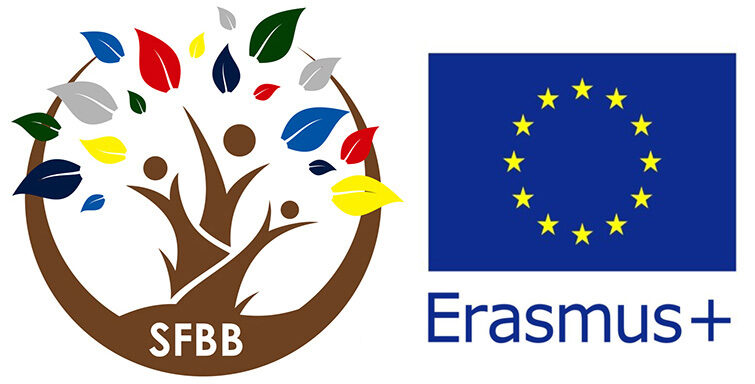ANGERS

Cécile Meynard, Professor of French literature. She has organized numerous seminars and conferences. She has obtained funding for many regional projects on the theme of Short Forms since 2017 (fundings through the regional CPER; from the Humanities structure, MSH Ange-Guépin; and through the interdisciplinary European research project „EnJeu[x], Enfance et Jeunesse”). She is also interested in what the digital humanities can contribute to the project, having co-directed and directed two on-line publishing projects.
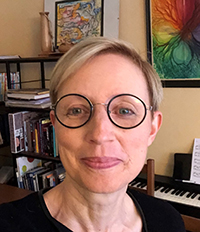
Michelle Ryan-Sautour, Associate Professor. She oversees the European Network for Short Fiction Research. Her research and teaching focus is the short stories of contemporary women writers. Her research has been published in various collections and journals such as Marvels and Tales, and Short Fiction in Theory and Practice. She is also the former editor of the JSSE (now consulting editor). Her current interests include intermediality and short forms (with a particular focus on digital media), graphic fiction, and the mediation of gender and cultural identity through short fiction.
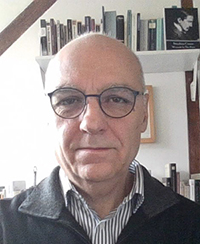
Emmanuel Vernadakis, Professor of literature in English and Deputy Director of the CIRPaLL research group. He is consulting editor of the JSSE of which he was co-editor from 1998 to 2013. His areas of specialization are short stories, theatre, and, more recently, short forms. He has edited or co-edited some 10 scientific books and is the author of 15 articles and 11 book chapters on the above fields.
Nadja Maillard, Associate Professor. Her current interests include language didactics and sociolinguistics, with a special emphasis on multilingualism and intercultural issues. Her research also focuses on digital and multimodal litteracies. She has practiced distance teaching for many years and has developed skills and expertise in this field. For several years now, she has been creating teaching kits for Unicef children’s literature prize (https://www.unicef.fr/dossier/prix-de-litterature-jeunesse).
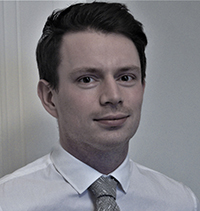
Xavier Lebrun, Associate Professor. His research interests revolve in particular around the works of Virginia Woolf and Malcolm Lowry –, the relationship between literature and philosophy, and literary representations of the self and interiority. His articles, including reflections on Woolf’s short stories, have been published in journals such as Études Britanniques Contemporaines and Image and Narrative. He is currently working on short forms from the standpoint of rhetoric and literary tropes.
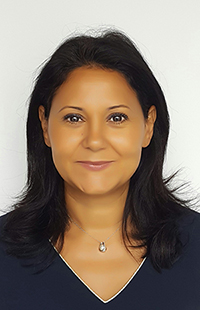
Karima Thomas, Associate Professor. She wrote a Ph. D. on Angela Carter in 2005. She published many papers about short stories, TV series, fan vids, trailers… She is also the coorganizer (with C. Meynard) of a project about Short Forms and Adolescence (workshops and seminars and an international conference). She is experimenting with different means of using short forms to develop linguistic skills and raise cultural awareness among students at the Institute of Technology of Angers.
Valentin Feussi est professeur de sociolinguistique et de didactique des langues à l’université d’Angers. Ses travaux portent sur une problématisation des francophonies sous l’angle de l’appropriation des langues. À partir d’un point de vue humboldtien, il valorise la perspective de la réception des langues en privilégiant une optique diversitaire et historiale. Ce regard fait de la pluralité un principe épistémologique sous-jacent aux rapports aux langues et permet d’explorer des conceptions (non) institutionnelles des langues. Cela laisse entrevoir l’investissement politique de tout interprète (dont le chercheur) dans l’élaboration du sens et des langues.
BALUDIK
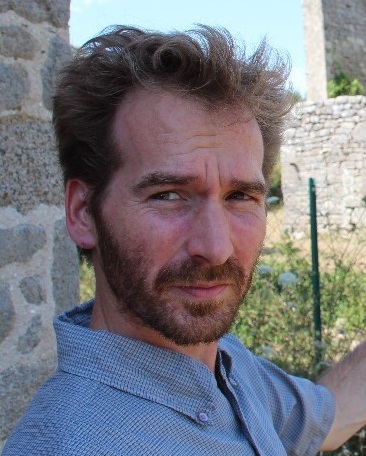
After 10 years in cultural and scientific mediation, Jérémie Simon (Baludik President) has designed and led tours for all types of public in France and abroad. As a geographer specialised in tourism, he masters the issues of mobility and traffic flows. Baludik was born out of his desire to add a playful dimension to the experience. Outward-looking and the company’s first ambassador, he uses his expertise and interpersonal skills to promote the company and its projects to customers and partners.
ATHENS
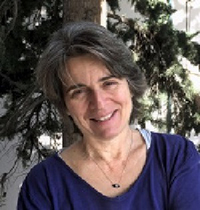
Marie-Christine ANASTASSIADI is associate professor in French Language and Translation. Her research interests revolve around the intercultural dimension of the translation teaching as well as the intercultural dimension of children’s literature. At undergraduate and postgraduate levels, she teaches the intercultural dimension of foreign language learning. With the professor Emmanuel VERNADAKIS, University of Angers, she is the director of the Franco-Hellenic joint MA programme “Language Teachers in Europe: Training for the Linguistic and Cultural Diversity in Schools”. She has coordinated the modules “Intercultural Education” and “Written skills in French as a foreign language” of the prostgraduate specialization for French teachers of the Hellenic Open University.
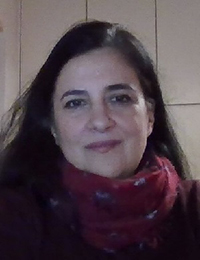
Marina VIHOU is assistant professor in Didactics of French Language and Intercultural Education. Her research interests include teaching French as a foreign language, multilingualism, research methodology in language teaching, distant education, translation and cultural diachronicity. Since 2011, she is also a teacher in the Franco-Hellenic joint master «Language teachers in Europe: training in linguistic and cultural diversity of school audiences» between the National and Kapodistrian University of Athens and the University of Angers. Since 2004, she is a member of the cooperating teaching staff of Hellenic Open University.
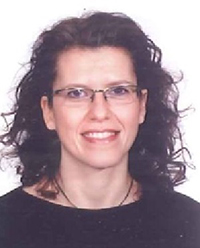
Mavina PANTAZARA is Assistant Professor of Translation and New Technologies (French-Greek) at the National and Kapodistrian University of Athens, Department of French Language and Literature. She holds a PhD, an MA and a BA in Linguistics (Université Paris 8, France) and a BA in Greek Language and Linguistics (National and Kapodistrian University of Athens). Her research interests include translation, terminology, lexicography, linguistic and cross-linguistic analysis, and language technology. She has participated in R&D projects in natural language processing (text mining, text corpora processing, linguistic testing for educational software, authoring and proofing tools, etc.) and in the creation of general and specialised dictionaries and language resources (Dictionary of Greek as a foreign language for the Education of the Muslim Minority Children, The Greek Crisis Multilingual Term Project, Multilingual Dictionary of colour metaphors, etc.).
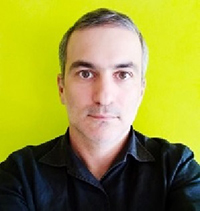
Theodoros THOMAS is working for the Multimedia Laboratory of Discourse and Text Processing as Special Technical Laboratory Staff. He holds a ΒΑ degree in French Language & Literature studies from the National and Kapodistrian University of Athens, a Postgraduate Diploma in the design of multimedia instructional material for virtual learning environments from the Universitat Oberta de Catalunya of Barcelona and a MSc in Multimedia Systems from Trinity College University of Dublin. So far, he has worked as an eLearning specialist and an IT trainer. His research interests lie primarily in the field of technology-enhanced learning.
GIESSEN
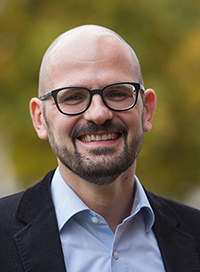
Michael Basseler is a specialist of cognitive and cultural approaches to short fiction and has worked extensively on how short fictional forms shape knowledge. He has widely published on short fiction in English, including the collection of essays A History of the American Short Story (Trier 2011, ed. with Ansgar Nünning) and his recent monograph An Organon of Life Knowledge: Genres and Functions of the Short Story in North America (Bielefeld 2019). He has been a member of the European Network for Short Fiction research steering committee since 2013, and is a member of the reading committee of the Journal of the Short Story in English. In addition to competency in the area of American literature, Michael is Academic Manager at the International Graduate Centre for the Study of Culture (GCSC), Justus Liebig University Giessen.
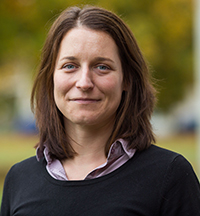
Katharina Stornig is junior professor of cultural history at Justus Liebig University Giessen’s International Graduate Centre for the Study of Culture (GCSC), with a special focus on transnational history. Her research interests include photography, photographic practices and visual culture, which can fruitfully be approached from the project’s perspective. She is also Head of the GCSC’s Teaching Centre, which provides various opportunities for developing professional teaching abilities, analysing problems within teaching and learning, and reflection upon teaching experiences.
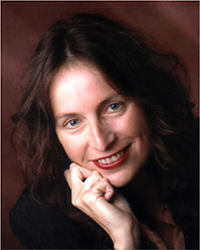
Kirsten von Hagen is professor of French literature and culture at JLU Giessen. She is a literary and media scholar with a strong interest in intermedial and transmedial forms of storytelling. She has recently published on short fictional forms in telephonic communication in theatre, films and novels as well as on telephone monodramas. She is a member of the Paderborn and Siegen network on short forms („Kleine Formen“). In addition to her expertise in the area of literature and film she is a researcher and member of the board of Directors of JLU’s International Graduate Centre for the Study of Culture (GCSC). She is also a member of the Network on Romani literature and aesthetics financed by the DFG and currently works on the short fiction of Anna de Noailles (DFG financed project).
LEUVEN
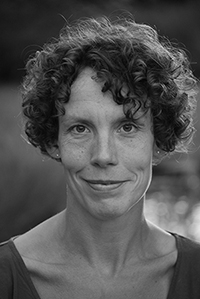
Elke D’hoker is professor of English literature. She is research director of the Leuven Centre for Irish Studies and co-director of the research group MDRN. She is currently also programme director for all language and literature programmes. As one of the founding members of the European Network for Short Fiction Research, D’hoker has a long-standing interest in short fiction, particularly the British and Irish traditions. Recent publications are Women Writers and the Modern Irish Short Story (Palgrave, 2016), Ethel Colburn Mayne: Selectes Stories (EER, 2021) and The Modern Short Story and Magazine Culture (EUP, 2021).
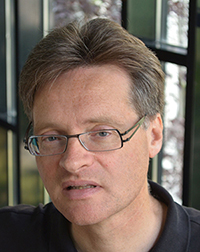
Bart Van den Bossche is professor of Italian literature and co-director of the research group MDRN. His main interests are in modern and contemporary Italian literature, in particular in myth and literature, avant-garde and modernism, short stories, poetry and media history. He published extensively on a wide range of authors and topics, in particular on Cesare Pavese and Luigi Pirandello. Together with Elke D’hoker, he co-organized two conferences on short fiction (Cycles, Recueils, Macrotexts, 2012, and Short Fiction: Co-texts and Contexts, 2017). He is currently working on book project on Pirandello’s short stories.

Dagmar Vandebosch is professor of Hispanic literatures. Her research focuses on the construction of (trans)national cultural identities in Spanish-language narrative prose and essays and on Hispanic literature in intercultural contexts, such as the literature of Spanish exile and the writing of contemporary Latin-American authors in Spain, as well as contemporary tourism and travel literature. She has published on a wide range of topics, authors and genres, including collections of essays and short story cycles in contemporary Spanish and Spanish-American literature. Together with Elke D’hoker and Bart Van den Bossche, she teaches a course on ‘Short Forms’ in the research master of Literary Studies.
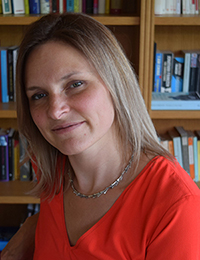
Beatrijs Vanacker is assistant professor of French literature and Translation Studies. Her research focuses on early modern (mainly 18th-century) narrative prose in relation to (trans)cultural identity, authorship, and gender. She has taught and published on a wide range of topics, including literary translation, paratexts, periodicals, letters and (trans)cultural networks. In the research master of Literary Studies, she co-teaches a course on narrative forms and the radical Enlightenment.
Dennis Melsen teaches languages and philosophy at the Jesuit college, Xaveriuscollege in Antwerp. He worked part-time on the Leuven team to develop and test the five-step model in the academic year 2021-2022.
Santiago de Compostela
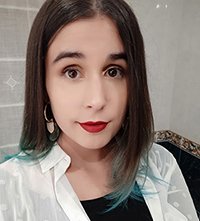
Sara González Bernárdez holds a BA and a master’s degree (University of Santiago de Compostela). She has been awarded a research scholarship funded by the Spanish Ministry of Science and Innovation, thus combining teaching at the Department of English (USC) and research on her doctoral dissertation, which focuses on the possibilities of fantasy as a site of resistance and articulation of liminal identities. Other research interests comprise literary theory, gender studies, videogames and fanfiction, among others.
Email | Personal website | ORCID ID | Google Scholar
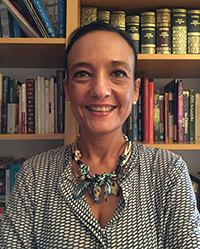
Laura Lojo-Rodríguez is Senior Lecturer in English at the Department of English and German Studies (University of Santiago de Compostela, Spain), where she teaches Literature(s) in English, Critical Theory and Gender Studies. Lojo leads the Research Group Discourse and Identity (ED431C, 2019/01,www.discursoeidentidade.com/es/gal) and is Principal Investigator of the research project Intersections: Gender and Identiry in Women’s Short Fiction in Contemporary Britain (FEM2017, 83084P, AEI, FEDER, www.intersections.es), funded by the Spanish Ministry of Competitiveness and Science. Lojo is editorial consultant of, among others, International Journal of English Studies (IJES), Journal of the Short Story in English (JSSE) and English Studies (ES).
Email | Personal Website | ORCID ID | Google Scholar

Sergio López Sande holds a BA in English (University of Santiago de Compostela) and a master’s degree (Representations and Construction of Cultural Identities, University of Barcelona, 2018). He has been awarded a research scholarship funded by the Regional Government of Galicia, thus combining teaching at the Department of English (USC) and research on his doctoral dissertation, which focuses on the short fiction of David Foster Wallace. His research interests include postmodern American fiction, short story theory and gender studies, among others.
Email | Personal Website | ORCID ID | Google Scholar
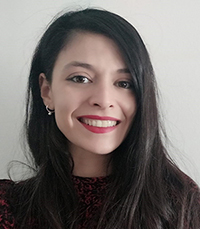
Noemí Pereira-Ares is Assistant Professor of English at the Department of English and German Studies (USC), Universidade de Santiago de Compostela. Her research interests comprise contemporary literatures(es) in English and immigration, postcolonial studies, and sociological approaches to the sartorial. Her research has been published in The Journal of Postcolonial Writing and Journal of Commonwealth Literature, among others, and she is also the author of Fashion, Dress and Identity in the Narratives of the South Asian Diaspora: From the Eighteenth Century to Monica Ali (Palgrave Macmillan, 2018).
Email | Personal Website | ORCID ID | Google Scholar
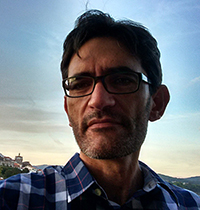
Jorge Sacido-Romero is Senior Lecturer in English at the University of Santiago de Compostela (USC). His research has centred mainly on the reproduction of ideological discourse in literary texts and the tensions it generates. Along these lines, he has published on Joseph Conrad (Atlantis 2011), James Joyce (Papers on Joyce 2012) or Slavoj Žižek (Grial 2007), amongst others. He has also coedited the volumes National Identities and European Literatures (Peter Lang 2008) and Sound Effects: The Object Voice in Fiction (Brill / Rodopi 2015). In recent years, Sacido Romero has focused on the study of the short story in English, conducting research on the work of Scottish writer Janice Galloway and leading three research projects: Modernism, Postmodernism and the English Short Story funded by the Galician Regional Government (Xunta de Galicia, 2008-2011), Women’s Tales: The Short Fiction of Contemporary British Writers 1974-2013,funded by the Spanish Ministry of Economy and Competitiveness (2014-2016) and Intersections: Gender and Identiry in Women’s Short Fiction in Contemporary Britain (FEM2017, 83084P, AEI, FEDER, www.intersections.es), funded by the Spanish Ministry of Competitiveness and Science. Sacido Romero is also a member of the steering group of the European Network for Short Fiction Research (ENSFR) and editorial consultant of the Journal of the Short Story in English.
Email | Personal Website | ORCID ID | Google Scholar
SZEGED

Anna Kérchy is Associate Professor of English literature at the University of Szeged, Hungary. Her research interests include gender/body studies, children’s/YA literature, Victorian and postmodern fantastic imagination, and intermedial dynamics. Besides numerous refereed essays published in international journals and collections, she authored the monographs Essays on Feminist Narratology, Aesthetics and Body Studies (in Hungarian, 2018), Alice in Transmedia Wonderland (2016) and Body-Texts in the Novels of Angela Carter (2008), and (co)edited seven essay collections including Translating and Transmediating Children’s Literature (2020), The Fairy-Tale Vanguard: Literary Self-Consciousness in Marvellous Genres (2019), and Posthumanism in Fantastic Fiction (2018). Her research on short forms focuses on fairy tales, picture books, and nonsense poetry.
Email | Personal Website | ORCID ID | Google Scholar
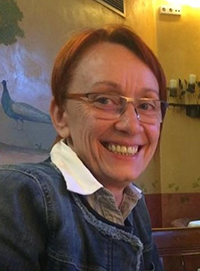
Erzsébet Barát is an Associate Professor of Linguistics and Gender Studies, in the Institute of English and American Studies, University of Szeged, Hungary. She has been Recurring Visiting Associate Professor at the Gender Studies Department, Central European University, Vienna since 2000. In 2000, she earned her PhD in Linguistics at Lancaster University, UK (). She is the director of the Gender Studies Concentration in the English Studies MA, University of Szeged, and founding Editor-in-Chief of TNTeF: Interdisciplinary Gender Studies (https://ojs.bibl.u-szeged.hu/index.php/tntef/index), the only Hungarian peer reviewed (e-)journal publishing feminist scholarship, launched in 2011. Her major fields of research interest and teaching are (1) critical studies of discourse with a focus on hate speech, language ideologies, and a social theory of meaning; (2) the intersection of feminist and queer theory, with a particular interest in non-exclusionary relational models of identity, sexual citizenship, and the stigmatization of „gender” as ideology; (3) feminist studies of the media, especially the articulation of the gaze, and ethics of representation of the suffering of the distant other. She has supervised ten PhD research projects successfully defended and is currently working with five candidates.
Email | Publications
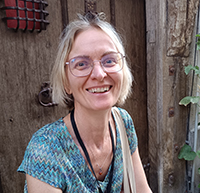
Ágnes Zsófia Kovács is associate professor at the Department of American Studies, University of Szeged, Hungary. Her research interests include late 19th-century proto-modern fiction, conversions of literary modernisms, popular fiction genres, and contemporary multicultural American fiction. Her research into travel writing involves re-mapping travel texts by Edith Wharton. She published two books, The Function of the Imagination in the Writings of Henry James (2006) and Literature in Context (2010), co-edited Space, Gender and the Gaze (2017) and edited Edith Wharton’s Osprey Notes (2021). She sits on the editorial board of Americana E-Journal, Szeged and Acta Philologica, Cluj.
Email | Publications | academia.edu
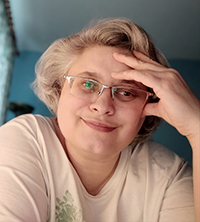
Larisa Kocic-Zámbó is a Senior Assistant Professor of English Literature and Culture at the University of Szeged, Hungary. Her research interest include religious/metaphysical and erotic literature of the Renaissance, Restoration and the 18th-century, gender and Early Modern literature, pop culture—theory and praxis (particularly fan fictions; comics/graphic novels), and psychodynamics of orality (or their vestige) in all of these. Her most recent publication is a chapter in an volume exploring Women (Re)Writing Milton, edited by Mandy Green and Sharihan Al-Akhras. Her research on short form focuses on early modern formal genres (sonnets, epigrams) and on narrative possibilities of serial daily strips.
Email | Webpage | ORCID ID | academiaedu
